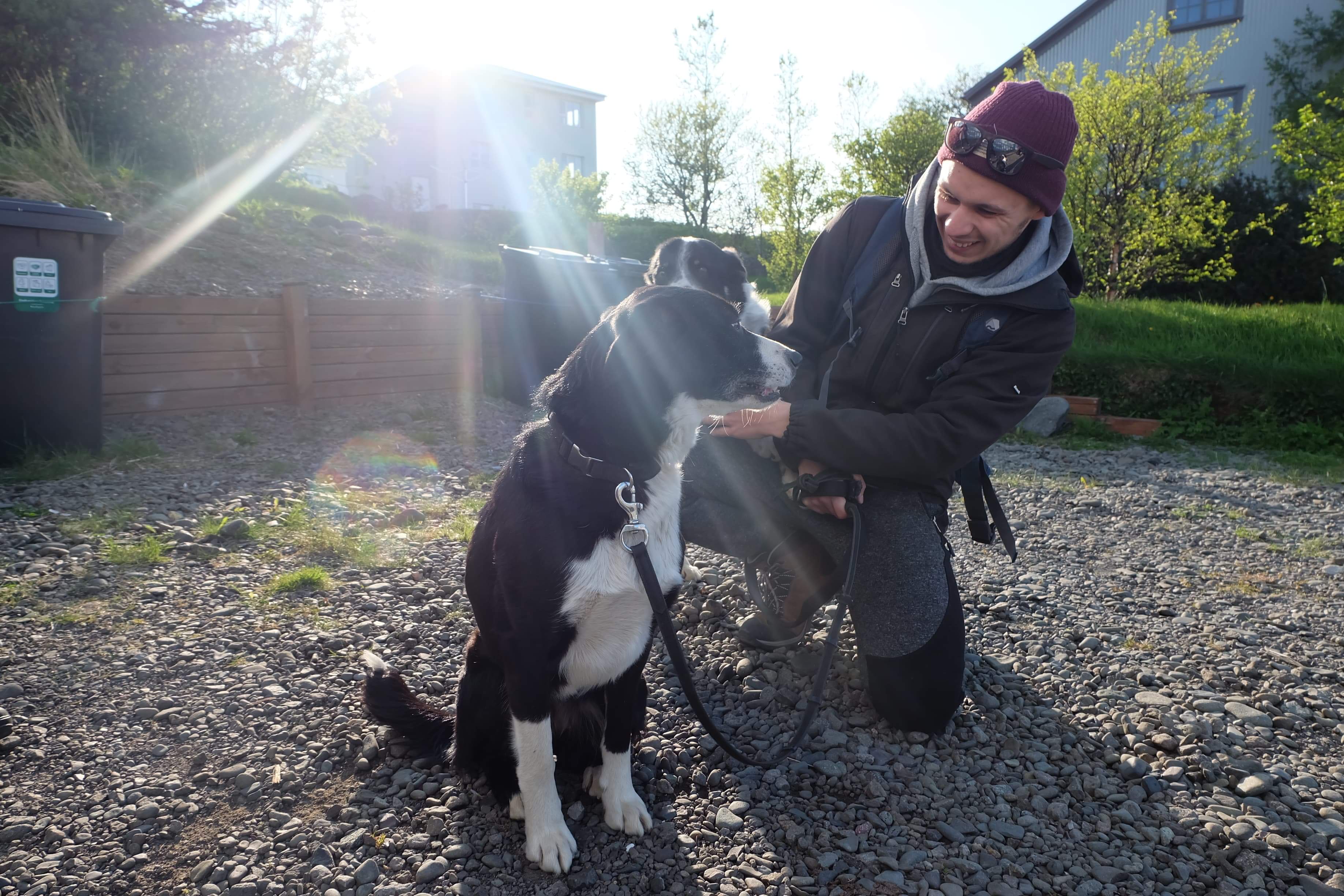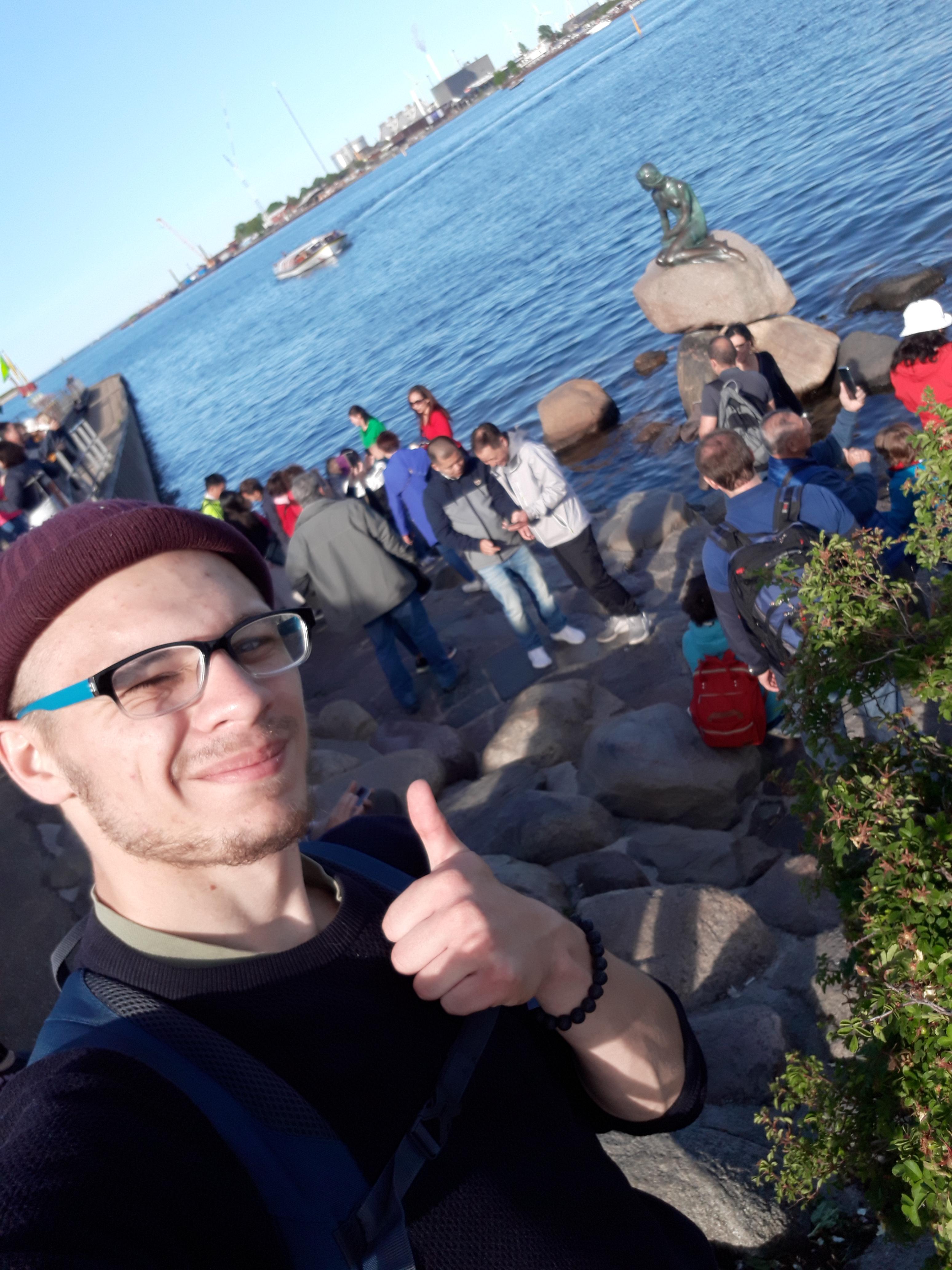
Nordplus is a Nordic-Baltic international cooperation program promoting student and teacher mobility. Aldas Jacas, a third year geography student at Vilnius University, learned about this project while it was held in Lithuania. “After the project there was very good feedback on the activities that it organizes, I learned about the possibilities to make international contacts and the opportunity to deepen my geographic knowledge,” says Aldas, and we continue to talk about his own experience with Nordplus in Iceland.
How did it all start?
In early January, I received a message from Rasa Ivanauskaitė - a well-known member of the Young Geographers' Club, asking to participate in this project. I hesitated at first - it was the busiest time of examination session, will I really be able to cope with everything? However, the fact that Nordplus will be organized in my dream country this year – Iceland - dispelled all my doubts.
What do you need to do to join this project?
In order to become a Nordplus participant, you must write a cover letter outlining your interests, your experience and your personal opinion on the project. The letters are then evaluated, and a specific number of participants is selected proportionally from each participating state. The topic of this year was “Changing Colors for the Future? Reimagining Coastal Communities“. The project focused on small communities located in the fjords in northwestern Iceland that are economically dependent on natural resources. One of the requirements for the cover letter was that it should include examples of such communities from the home country. As such communities no longer exist in Lithuania, it was quite difficult to evaluate this topic objectively. One of the most suitable options was the population of the Curonian Spit which had previously survived only because of fisheries, when fish was transported to the mainland and sold there. Nowadays such communities have become tourist and recreational attractions.

How much time did you spend in Iceland and what activities were you involved in?
This year the Nordplus project took place from 19 to 31 May. We arrived in Reykjavik on the evening of the 19th and immediately had a common dinner for the participants and were introduced to the program for the coming weeks. Over the next few days, we listened to lectures at the University of Iceland given by the local teachers and the teachers who accompanied students from Latvia, Finland and Norway. We learned more about collaborative social research and small Iceland’s communities. Then a trip to the Westfjords, a rather secluded area to the northwest, awaited. We stayed in Isofjordur, a town with only 2,500 inhabitants. Here we prepared for the field work for two days: we analyzed the villages of Iceland assigned to each international team (the 16 participants in the project were divided into four teams): their demographic, social, economic status. Also, by selecting what we believed to be the most important questions, we compiled community questionnaires in order to understand better how and why people are still living in the communities which we investigated. My team and I lived in the village for three days. During that time, we were able to take five interviews from the locals. By the way, one of the most unexpected conversations was with a Lithuanian woman who has been living there for 13 years. It was very nice to be in such a secluded Icelandic village, as the Icelanders say, "in the middle of nowhere," and to communicate in Lithuanian. And this was not the only encounter with our compatriots. In Thingery, during the interview at the Belgian waffle shop, a student from Kaunas, who was working there for the third summer, joined the conversation. Soon enough, a seemingly young man came to our table and also spoke in Lithuanian! Later we found out that he lives on the other side of the fjords and did not even imagine that there might be more nationals in this small area. So, at that time, there were four Lithuanians in the Icelandic Belgian waffle cafe, which made up a percentage of the population of the place!
In addition to interviews and surveys on the streets of the village, we also did cartographic work to distinguish recreational, industrial and residential areas according to the current situation of the town. After returning to the town of Isofjordur, we spent the rest of the day analyzing the data and compiling stories with ArcGis Story Maps [you can see them here: https://bit.ly/2Z4YSNZ – the author’s note]. This was the most intense time since it required a large amount of information to be processed to produce qualitative research results. On the last day of our stay in Isofjordure, each team presented their results to the teachers and listened to their assessments and recommendations for future research. We went back to Reykjavik the next morning. Along the way we went to a geothermal pool and visited a very young (~ 5,000 years) volcano.
What did the results of your research reveal?
Research has shown that every community is trying to discover and offer something unique to Icelanders and visitors alike. As I mentioned, my village has a Belgian waffle shop, as well as hiking trails, a stud farm, a mountain bike rental... Other places are distinguished, for example, by the chocolate factory or other, mainly recreational activities.
How would you rate your experience? What did Nordplus give you?
In conclusion, I would like to say that it was an invaluable experience not only for a geographer, but also an extraordinary opportunity to get to know the friendly locals of the less-explored country, their mentality, their way of life and to see the unique natural beauty of Iceland. In addition, I gained a lot of experience working in an international team and I had a great opportunity to improve my English language skills. The Nordplus project is a real opportunity to test yourself in social geography, to get to know other geography schools, to deepen knowledge and, what is most important for a geographer, to expand your horizons as you travel and discover the links between society and nature.
